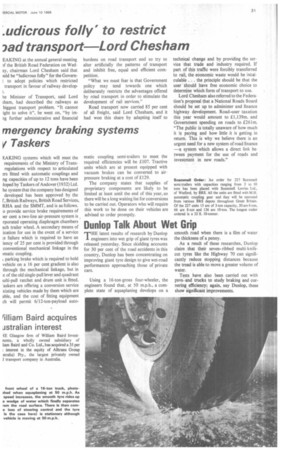.udicrous folly' to restrict )ad transport Lord Chesham
Page 33

If you've noticed an error in this article please click here to report it so we can fix it.
EAKING at the annual general meeting )f the British Road Federation on Weday, chairman Lord Chesham said that mid be "ludicrous folly" for the Govern: to adopt policies which restricted transport in favour of railway develop he Minister of Transport, said Lord 3ham, had described the railways as biggest transport problem. "It cannot ight to solve it", he went on, "by insrig further administrative and financial burdens on road transport and so try to alter artificially the patterns of transport and inhibit free, equal and efficient competition.
"What we must fear is that Government policy may tend towards one which deliberately restricts the advantages offered by road transport in order to stimulate the development of rail services."
Road transport now carried 85 per cent of all freight, said Lord Chesham, and it had won this share by adapting itself to technical change and by providing the service that trade and industry required. If part of this traffic were forcibly transferred to rail, the economic waste would be incal culable. the principle should be that the user should have free economic choice to determine which form of transport to use.
Lord Chesham also referred to the Federation's proposal that a National Roads Board should be set up to administer and finance highway development. Road-user taxation this year would amount to £1,139m. and Government spending on roads to £261m. "The Public is totally unaware of how much it is paying and how little it is getting in return. This is why we believe there is an urgent need for a new system of road finance —a system which allows a direct link between payment for the use of roads and investment in new roads."




























































































































